Do punishments sit well with you? What about time outs? Or sticker charts? Or spanking? If these issues just aren’t your cup of tea, or maybe you kind of feel like there should be something better out there, then you might be wondering what is gentle parenting.
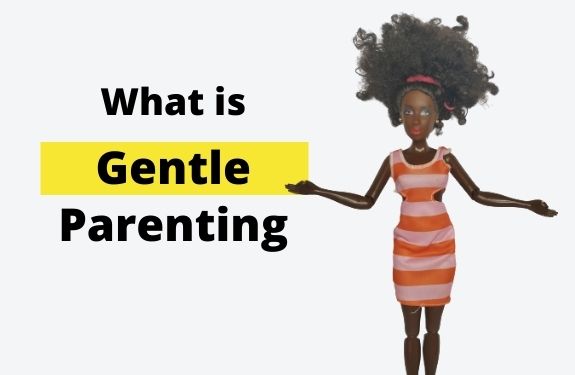
Gentle Parenting is a long term approach to discipline that respects the child as a whole person.
One of the most important distinctions from Gentle Parenting and other parenting strategies is the goal of the parent.
As the parent, is it you goal that your child would cooperate with you immediately, or is it your goal to teach them to want to do the right thing?
If you’re interested in your child having a heartfelt willingness to do what’s right then Gentle Parenting might be right for you.
(This post might contain affiliate links, which means if you happen to buy a product I love then I may get a commission – at no extra cost to you! For all the Ts and Cs go here.)
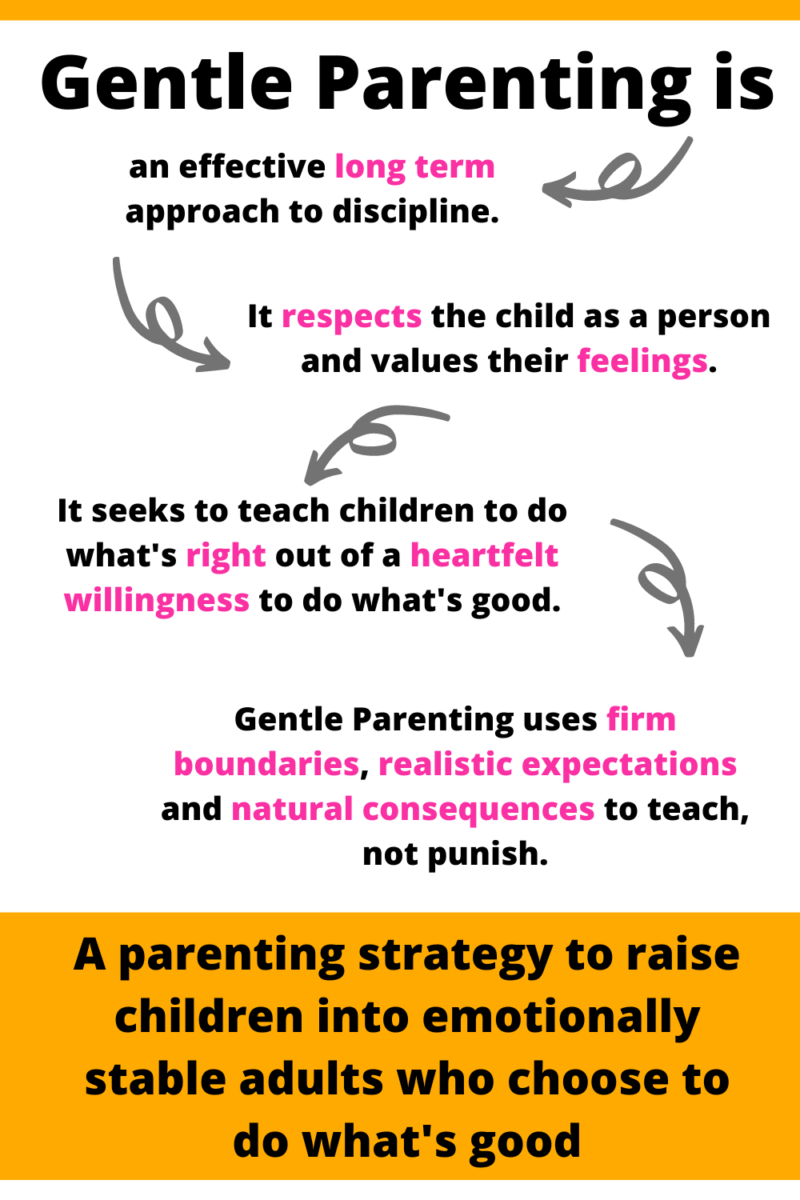
Discipline isn’t about punishment
Did you know that the word discipline actually means, “to teach.”
Gentle Parenting actually doesn’t rely on punishments at all, because that’s not what discipline is about, and although it may help to get immediate obedience from your child, it does not cultivate a heartfelt willingness to do what’s right.
When we discipline our children we are teaching them how to conduct themselves in this big world around them. We are teaching them how to treat people with kindness, how to be polite, how to tell the truth and so much more.
But we don’t get there by punishing children, which can leave them feeling ashamed of their mistakes. Instead we give children the freedom to make mistakes and we help them overcome those mistakes together.
Punishments teaches children to feel ashamed, Gentle Parenting helps the child fix the problem with a capable adult by their side.
We can teach our children to obey authority out of fear of punishment/desire for reward, or we can teach them to obey authority out of respect. And it’s not just about obeying authority. It’s about having manners, and social skills, and listening skills, and overall being a well rounded human being. A child who can confidently adapt to their environment will do a much better job exploring and learning than those who lack the necessary skills to engage in a social atmosphere. We’re not just disciplining them to get them through childhood, but to shape the direction of their entire lives.
Let us discipline our children intentionally so they will grow to be kind adults.

What are the alternatives to Gentle Parenting?
Gentle Parenting is a wonderful approach to child discipline that truly honours children and shapes them into good people, using love and not fear. A bad rap can be associated with Gentle Parenting though because it’s often confused with permissive parenting – which basically means permitting your child to do whatever they want.
Permissive Parenting
Imagine a child scribbling on the walls, while their sibling shaves the dog, and their zen mother is sitting on the couch talking about how her beautiful little babies are so creative, dancing to the beat of their own drum. Or maybe she’s just given up and doesn’t have an ounce of energy left so she doesn’t stop them.
Mmm ya, that’s what people might think of when they think of Gentle Parenting, simply because it isn’t as harsh and strict as authoritarian parenting, but what I described above is actually permissive parenting. Although the mother might not necessarily be feeling “zen” it might be more a feeling of surrender when nothing else has worked!
Authoritarian Parenting
Authoritarian parenting would agree that children should be seen and not heard, would expect children to act like adults, and would probably spank the child for disobedience – with good intentions perhaps but still spanking.
Authoritarian parents expect immediate obedience and cooperation from their child and often have expectations that are beyond what the child is developmentally capable of.
These kinds of parents tend to punish most mistakes swiftly and can miss the child’s need for connection and support to overcome those mistakes.
Gentle Parenting is the sweet spot between permissive parenting and authoritarian parenting.

But what really is Gentle Parenting?
Gentle Parenting can seem overwhelming when you first start to look into it, especially if you grew up with either a very authoritarian type of parent, or a very permissive parent.
In practice what would a Gentle Parenting home look like?
- Children are allowed and encouraged to voice their opinions, although parents still make decisions for the family the child’s feelings are considered. The parent is able to empathize with the child when things don’t go their way.
- When children behave badly parents can redirect the child (especially with toddlers).
- When parents are addressing the child’s mistake they speak to them kindly and refrain from saying things like, “What were you thinking?” “Wow, you sure messed up again.”
- Parents allow natural consequences to teach a child why they shouldn’t do something, rather than creating punishments.
- Parents model respect to gain respect.
- Parents expect their children to do what they are capable of and as they get older and more capable the parent’s expectations increase.
- Parents learn to regulate their own emotions so in the difficult moments they don’t have their own tantrum but can model emotional maturity.
The “Know-Yoke-Grow” System
These are the 3 main areas of Gentle Parenting, and the system I use if you want to create a heartfelt willingness to do what’s good in your child.

#1. Know
The first part of our Gentle Parenting system is KNOW.
Know yourself, know your child.
Know your emotions
In order to be a gentle parent, you need to be able to regulate your own emotions. This isn’t always easy which is why I say we need to know ourselves. We need to know what makes us angry, what sort of triggers to we have?
If you find that you are especially angry when you are tired, how can you incorporate more self care into your day? How can you make sure you get more rest? Attempting to be supermom usually only ends in burn out, it’s better sometimes to scale back the busy life so you can get some rest so that when you are with your child you’re operating at 100%.
This can be a hard journey to go on, dealing with your own emotions is complicated business but so much of Gentle Parenting requires patience, and it is so much easier to deliver that patience if we invest in our own emotional health first. Knowing how to handle your own emotions is the first step in Gentle Parenting.
Read: 6 Ways to Stop Being an Angry Mom
Know your child as a person
The next important thing for us to have moving forward with Gentle Parenting, is an appropriate view of children. Do you see your child as a whole person? Do you respect that they have needs and feelings just like you? Children aren’t mini adults, but they are whole people.
If we see children as a burden, or buy into this popular idea that “children are a$$holes” it’s going to hold us back from giving them all the patience and gentleness they need through discipline. It will be too easy to jump back to spanking and time-outs if we see them as a burden. But children are not a burden.
And when we can respect them as whole people and understand their point of view, knowing how to discipline them can become very easy.
It’s also important to recognize and know how your child is feeling. If they get especially cranky right before dinner then maybe they need an afternoon snack. Sometimes the best solutions for a tantrum is actually sleep or food.
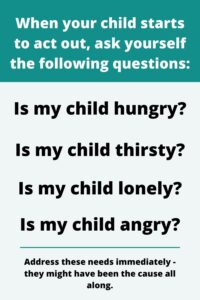
Know your child’s development
The next thing you need to know, is your child’s development. You don’t want to have unrealistic expectations on them or you’ll be frustrated and upset when they won’t/can’t do what you want. There are certain things common to age ranges, but it’s up to you to know where your child specifically is at.
From here out, you won’t be expecting your child to do things they can’t do yet. And sometimes as a parent that is hard, you might wish your child didn’t need supervision while playing in the living room while you’re in the kitchen, but maybe for the time being that’s just how it is.
Another part of knowing your child’s development though and having reasonable expectations means you can eliminate things from their environment that they can’t handle. This is why we baby proof. One day you can reason with a child why it’s dangerous to put a fork in the electric outlet, but when they’re young sometimes the most gentle way to handle that is to cover the outlets. Even with older children we can eliminate things from their environment to make it easier for them to do what we want.
Have you ever NOT bought a box of cookies because you knew once they were in the house you wouldn’t be able to help yourself and would eat too many? Yup, that’s what it’s like for children too.
#2. Yoke
The next step in our system is to yoke ourselves to our children in a strong, trusting relationship.
A yoke is something used to harness two animals together so they can work together to plough a field.
We need to yoke ourselves to our children because we need to be in this together with them. Learning how to do the right thing in this world can be difficult. As my husband always says, “To grow up is difficult,” and it’s true. We yoke ourselves to our children to work with them in their problems, but also to give them the trust and security they need.
Connection before Correction
This is a popular phrase in the Gentle Parenting world. It means that before we go forward with correcting our child we should connect with them. This means on going connection like snuggles, playing together, chatting, etc. but also when they have done something wrong and we approach them. We can get down on their level, but an arm around them and give them some comfort rather than jumping on them for the mistake they made. By laying this foundation of security first it makes it easier for our child to talk to us about the problem.
Validating Feelings
Part of this strong connection we have with our child is to be able to validate their feelings and see things from their point of view. This means that we don’t dismiss how they’re feeling or try to cover it up. When they cry about something that in our rational thinking seems silly we don’t tell them that, instead we can say something like, “That makes you really sad right now,” “I can see that you’re really upset by what happened.”
You allow them to feel what they’re feeling and put a name to it instead of trying to change how they feel. Some emotions might make us uncomfortable, like sadness or anger, but telling a child to “stop” feeling something hardly ever works. It’s a process and we can give them a safe an appropriate outlet to process those big emotions. When our child is angry we don’t stop them from being angry, but we would stop them from hurting someone.
Positive Language
When we see things from our child’s point of view we can also see how they might like to be spoken to, and we use positive language to nurture the trusting relationship and connection we have with them.
Positive language can be used as encouragement, and even with that as gentle parents we are wise to carefully encourage our children in a way that doesn’t make them dependent on validation. We want them to be able to compliment themselves, rather than always expecting and needing praise. You can read more about that here.
Positive language is also used during correction. Rather than just saying, “NO” which is more of a command and not actually teaching our child something, we can say, “That is dangerous, take your hands off of it.” You can say things like, “I see that you are angry right now and you can come sit on my lap or on the couch until you calm down, but you need to keep your hands off of your brother.”
Positive language teaches a child what they should do, rather than just telling them all the things they can’t do which often just leaves them feeling frustrated.
Read: 5 Steps to be a Parent Overflowing with Positive Language
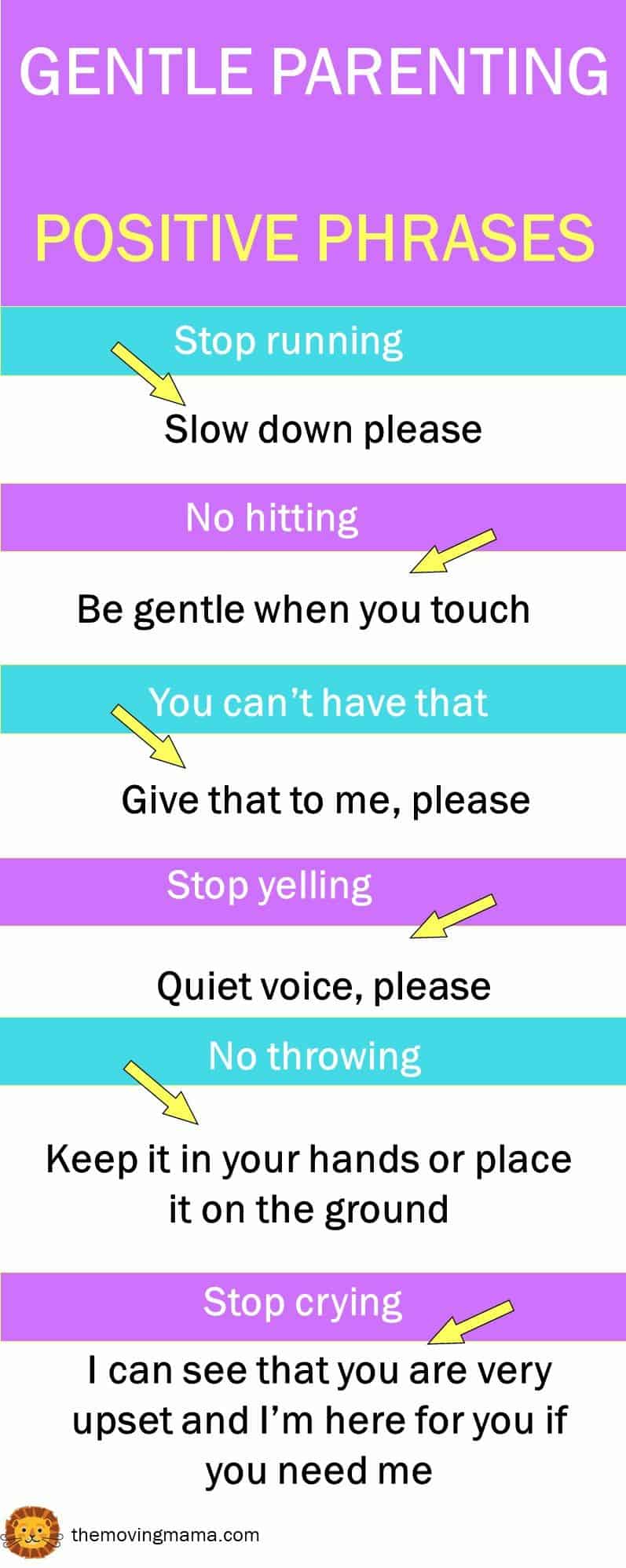
#3. Grow
The final part of our system is helping our children grow towards the right behaviours. How do we teach and guide them when they are making mistakes?
Firm boundaries
When it comes to what our child is and isn’t allowed to do, we make it very clear. Sometimes firm boundaries are physically set up (such as baby proof or making other things out of reach) but they can also be how we conduct ourselves as a family.
If your children always end up fighting when they play outside it might be a firm boundary that they always have to have supervision.
With firm boundaries it’s important that your child is on the same page as you and that you are consistent. Sometimes children will try to push the boundaries, which may be challenging for you but if you stay consistent it is good because they will discover exactly where that boundary line is.
As your child gets older you might change the boundaries according to what is appropriate for them at that age.
Read more about setting limits and boundaries here.
Natural Consequences
Gentle parents use natural consequences rather than punishments. Natural consequences are very different from punishments or even logical consequences, because they are consequences that aren’t created by the parent, they’re just the natural result of what your child chose to do/not do.
For example, maybe they have been really mean to their brother or sister and now that sibling doesn’t want to play with them anymore, that is a natural consequence.
Or they spill a glass of juice, the natural consequence is now there is a mess and it needs to be cleaned up. How you are the parent approach this natural consequence makes the world of a difference. You can say something like, “Ugh, look what you did! I told you not to take your juice in here, why didn’t you listen to me? This is such a mess and now I have to clean it up. Yuck.” or you could say something like, “Oh no, the juice is on the floor, we need to clean it up” and invite them to help you clean or to do it themselves. Taking it as a “matter of fact” can be more effective than turning it into an emotional issue.
Learn more about natural consequences here.
Does Gentle Parenting work for all children?
I say YES.
I have worked with children of all ages and cultures all over the world and never felt that gentle discipline didn’t work on a certain child.
But as a parent it can be hard to get over some of our expectations, learn to regulate our emotions and to truly implement positive discipline. The thing is, it is a long term approach. Our goal isn’t to have perfect angel children in 20 minutes, it’s that we would raise children who choose to do the right thing. Some children will reach that point sooner than others.
For some parents using Gentle Parenting will come naturally, and for others it will be more difficult. Often times it’s because parents get stuck in the first part of our system, “Know.” They struggle to learn to regulate their emotions and to have appropriate expectations for there kids. They feel trapped in a cycle of frustration and they need to tackle that before they can truly use Gentle Parenting in all it’s glory.
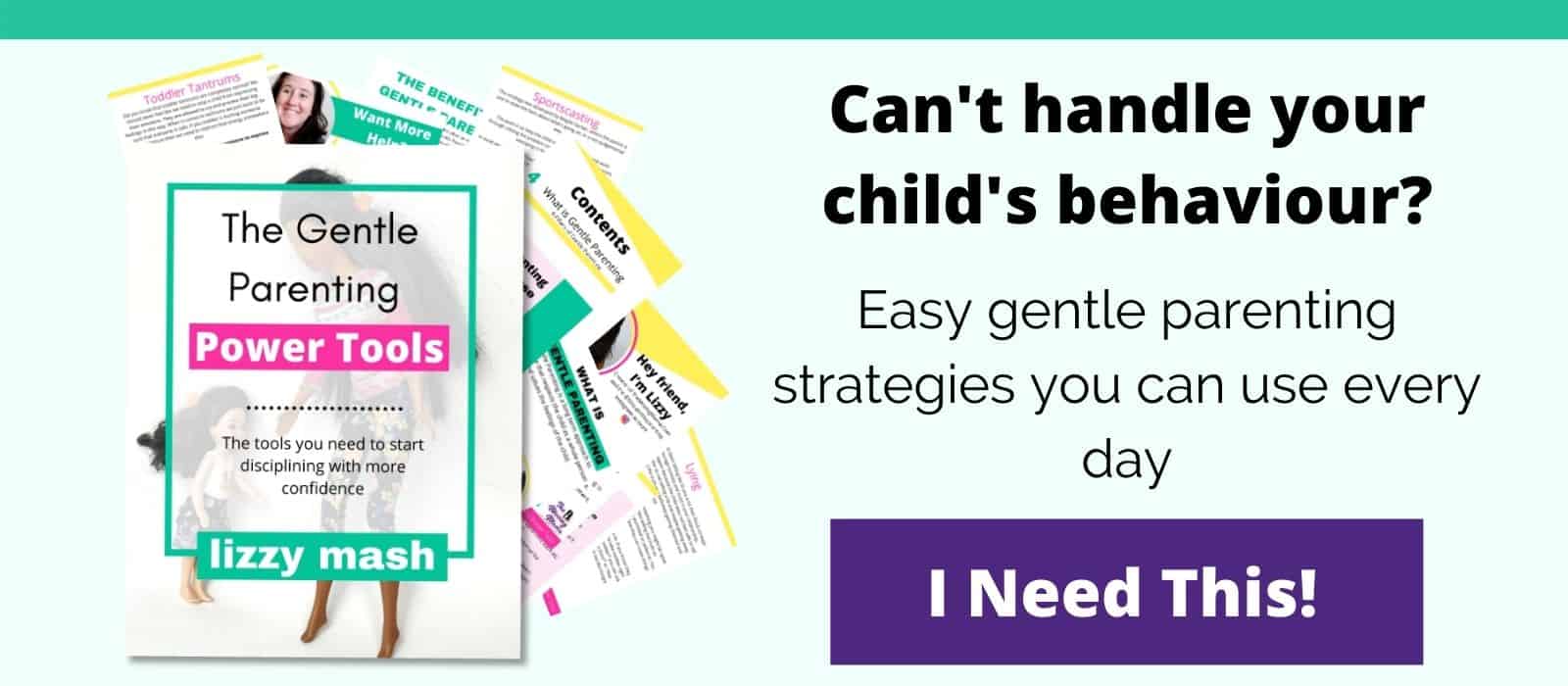
Does Gentle Parenting work for children with special needs?
The same principles are still in play but you might execute them differently. I have less experience in that area so I will refer you to this article by Dr Laura Markham.

Is Gentle Parenting Biblical? Doesn’t the Bible Say to Spank?
This is a touchy spot for a lot of people, but the more you read about it the more you’ll find that Gentle Parenting is very compatible with Christianity.
The Bible doesn’t command a certain style of parenting, and there is nothing about Gentle Parenting that is contrary to what the Bible says. That’s right, the Bible doesn’t even command spanking.
You can read my various Christian Gentle Parenting Posts here:
Christian Gentle Parenting: – Is it Biblical?
Is Spanking Biblical?: The Truth About Biblical Discipline
Hebrew Explanation of the Rod Verses About Spanking Children

How do I start Gentle Parenting?
So does Gentle Parenting sound great? If you want to get started some of my best advice is in my free course, Gentle Foundations for Parenting. I also have a paid video course that is more intensive, but the free course is a great start and you can sign up below. I will be going deeper into some of the instructions I’ve already given you.
I would also recommend reading The Whole-Brain Child: 12 Revolutionary Strategies to Nurture Your Child’s Developing Mind which it’s great if you want some science-backed reasons to get on this Gentle Parenting train.
Changing to Gentle Parenting can be a hard transition to make as a parent, especially if you are used to yelling and shouting because that’s a really rough cycle to get out of. But imagine a home where you don’t feel the need to yell, your children respect you and have confidence in their relationship with you, and obedience is out of love and not fear.
Remember, it’s a long term commitment, but it will be totally worth it in the end.
More Gentle Parenting Posts
Anti Racist Parenting is a Part of Gentle Parenting
How to Discipline a 12 Month Old Baby
6 Main Parts of Gentle Parenting
What Punishments Are Getting Wrong About Child Discipline


Pingback: 5 Steps to Be a Parent Overflowing With Positive Language - The Moving Mama
Pingback: 6 Ways to Stop Being an Angry Mom - The Moving Mama